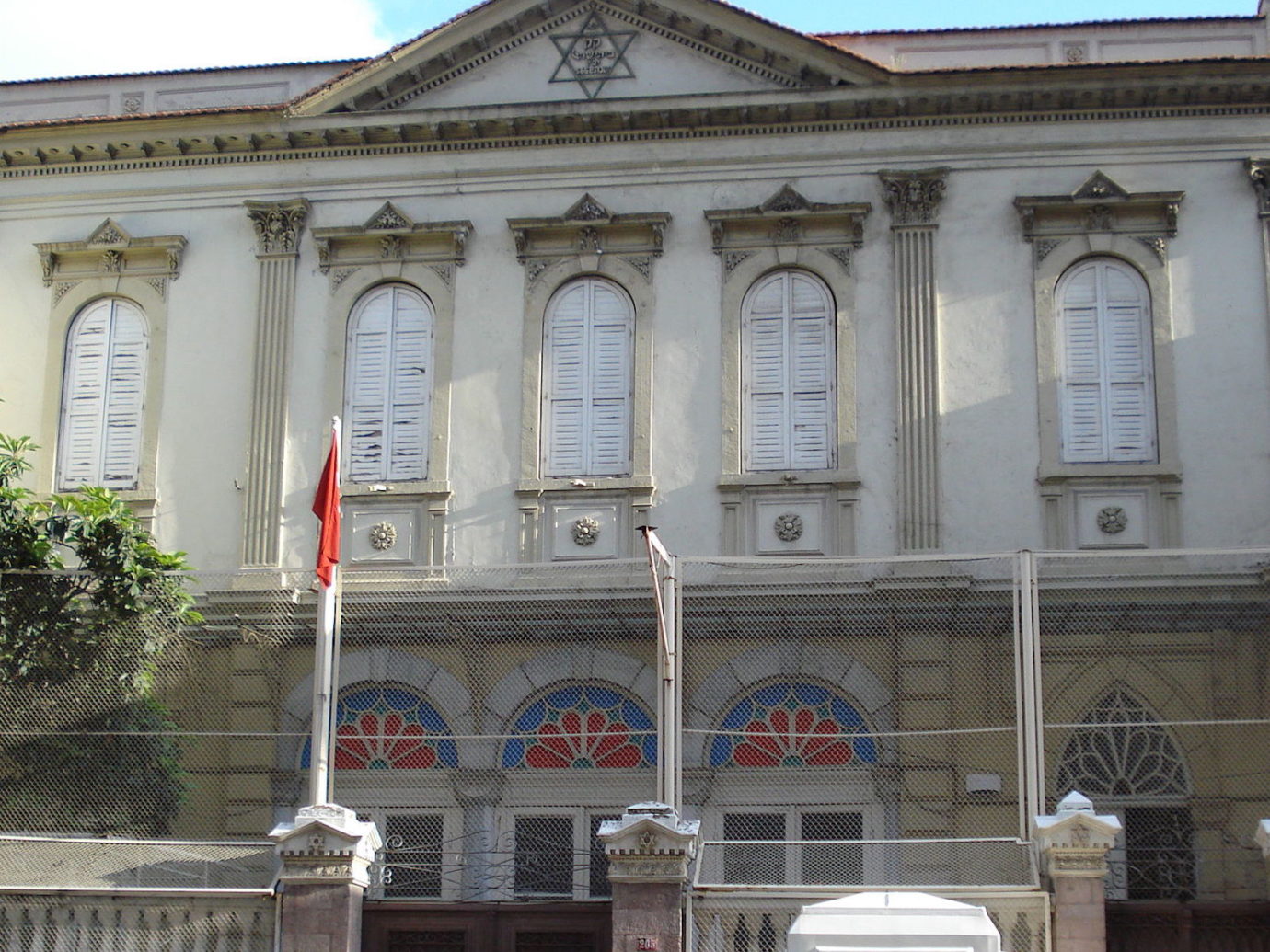 A view of the Beth Israel Synagogue in Izmir, Turkey, in 2010. (Wikimedia Commons)
A view of the Beth Israel Synagogue in Izmir, Turkey, in 2010. (Wikimedia Commons) Change is happening fast in Turkey, and countries from Europe to the Middle East and the US are taking note.
On the brink of international isolation not so long ago, we have seen President Recep Tayyip Erdogan usher in a far-reaching geopolitical recalibration in recent months, including several actions that have required real leadership at a time when the world is crying out for partnership and peacemaking.
Across the Black Sea, the Turkish government has provided critical defensive assistance to Ukraine. At the same time, Erdogan has presented himself as a critical mediator between Moscow and Kyiv, leading the international effort to secure a ceasefire.
With neighboring Armenia, a new opportunity now beckons to normalize a relationship that has been almost nonexistent for a century, with reopened borders and mutually beneficial trade ties. Erdogan also visited Abu Dhabi last month to patch up ties with the UAE. At the directive of the president, Turkish Foreign Minister Mevlut Cavusoglu in January met with Bahrain’s Crown Prince Salman bin Hamad Al-Khalifa in Manama. He is also scheduled to visit Israel in the first week of April.
It was a breakthrough when Israeli President Isaac Herzog visited Ankara last month — the most senior Israeli to travel to Turkey in 14 years.
For the last several months, I have been directly involved in diplomatic efforts to shore up another bilateral relationship that is critical for regional security: That between Turkey and Israel. The backchannel talks helped lead to a significant breakthrough, as Israeli President Isaac Herzog visited Ankara last month — the most senior Israeli to travel to Turkey in 14 years.
The renewal of this relationship was no small feat. Relations tumbled dramatically in 2010 amid the fallout of the Gaza flotilla raid. Eight years later, riots broke out in Turkey after the US recognized Jerusalem as the capital of Israel. And the Israelis have chafed for years over Turkish support for the militant Hamas group.
The many differences between the two countries, particularly over the Israeli-Palestinian conflict, will not be solved overnight or through one meeting, but the images of Erdogan welcoming Herzog with open arms undoubtedly sent a signal of hope in a part of the world that needs unity, not division, and security collaboration, not confrontation.
The path to rapprochement was long and winding, stretching all the way to New York and Washington. In the US, I worked closely with Turkish Ambassador Murat Mercan to orchestrate the steps taken by each side, including phone calls between the heads of state and proposed confidence-building measures for each side. At a time when many in the US, including some Jewish leaders, were questioning Washington’s decades-long alliance with Turkey, we discussed how a new Turkish approach toward Israel could be beneficial to all sides.
The summit must not be a one-off. Based on my conversations with the two presidents last week, I feel confident that this new Turkish approach could pay dividends far and wide. As US Ambassador to Turkey Jeff Flake told me, the new direction in Turkey’s foreign policy has been acknowledged and appreciated in Washington.
Even at home, Erdogan has embarked on important reforms and demonstrated congruence between Turkey’s internal affairs and its outward commitments. He is widely reported to have curtailed the influence of the Muslim Brotherhood and made it clear that his party is with the Turkish people in their respect for both Islamic and secular traditions.
In recent months, the president has clearly charted Turkey on a new course that can help solidify its standing as an invaluable force for stability. With the government now embarking on this new, pragmatic foreign policy, we may be able to reconstruct a regional architecture that has been so sorely lacking.
While the future is unknown, we should today credit Turkey for the many steps it is taking to inject hope in places where it has been hard to find. These new bonds of friendship are fragile and must be cultivated by all parties. We all should do all we can to look past our own perceptions of the wrongdoings of the past and explore how we can join together in the quest for greater peace and stability. ■
Rabbi Marc Schneier is president of the Foundation for Ethnic Understanding and a noted adviser to many Gulf states.




















 More news and opinions than at a Shabbat dinner, right in your inbox.
More news and opinions than at a Shabbat dinner, right in your inbox.